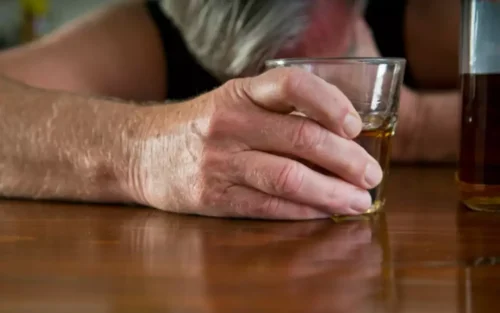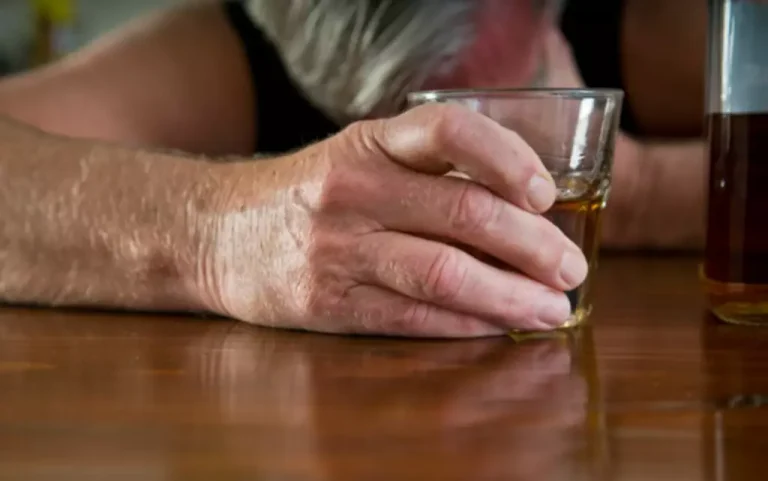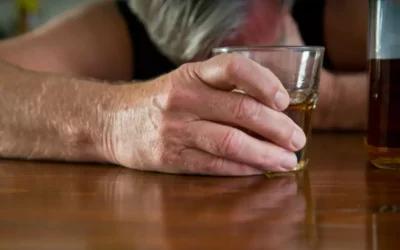
As a passionate advocate for science-based content, she loves writing captivating material that supports scientific research and education. In her spare time, you can often find her exploring nature with her husband and three children. While “relaxed” may sound appealing, alcohol has also been shown to negatively affect sleep and other physiological processes that occur during sleep. If you think your drinking may be impeding your sleep or overall quality of life, speaking to your doctor or therapist is a great first step. Even though a glass or two may help you initially drift off faster, https://ecosoberhouse.com/ it probably won’t benefit your sleep quality in the long run. Join our Sleep Care Community — a trusted hub of sleep health professionals, product specialists, and people just like you.
Lifestyle
However, this isn’t always the case — many people still feel the urge to get up to use the bathroom at night. If you’re one of them, you’re likely does liquor help you sleep looking for ways to minimize bathroom trips and save your sleep quality. Read on to learn why you have to go so often at night and five things you can do to stop it. At the same time, hormones — which act as internal messengers — surge through your body, triggering and implementing several important processes and functions. Growth hormone, well known for helping children achieve their full height, continues to be released during sleep throughout your life, though its levels start to decline beginning in your 30s and 40s.

Better sleep, more energy and feeling in control: the reported benefits of Dry January
The effects of alcohol vary from person to person, and ultimately, an occasional drink will not derail your efforts. Still, when you’re putting in the time with training, good nutrition, sleep, and hydration, alcohol should be something you’re thinking about. Though alcohol can have a sedative effect, it has also been linked to sleep disorders like insomnia. If you’re having trouble falling or staying asleep, alcohol consumption could be a contributing factor.
Wait Between Drinking and Bedtime
“First of all, it increases our initial deep sleep, disrupting our sleep stages’ overall balance,” he said. It’s likely that most people reach for the hard stuff to help them sleep because alcohol, for all intents and purposes, is a sedative. And no one will argue that it can shorten sleep latency (the time it takes you to fall asleep). However, the problem with alcohol and sleep often appears as the night progresses. Ultimately, your overall sleep quality will take a hit as the alcohol starts to metabolize and its effects begin to wear off. And when this happens night after night, you’ll find yourself dealing with insomnia.

Department of Veterans Affairs estimates that between 36% and 91% of people with alcohol dependence experience insomnia. The research also showed that sleep problems often occur before a person develops issues with alcohol, but alcohol dependence may also lead to insomnia, creating a complicated cycle. Even though alcohol can make you feel sleepy, it may impact your overall quality of sleep. If you go to bed with alcohol still in your system, you may experience headaches, frequent awakenings, night sweats, more intense snoring, and nightmares. Whether you have had one or multiple drinks, it’s best to wait for your body to fully process the alcohol before heading to bed. In general, try to avoid drinking alcohol four hours before you plan on going to sleep.
- You may or may not remember them, but they can be lucid or give you a feeling that you are half awake and half asleep.
- However, as a general rule for the odd occasional drink, stick to having a drink with a gap of at least 4-5 hours before bedtime.
- If you usually display your special liquors on a bar cart in the living room, “put all your alcohol in the pantry,” says Koob, “in the back.” Or consider giving it away.
- It is more often consumed at night, also called a nightcap, and may negatively affect your sleep.
- Evidence suggests that consuming alcohol may decrease the body’s sensitivity to cues, like daylight and darkness, which trigger shifts in body temperature and secretion of the sleep hormone melatonin.
Our heroin addiction circadian rhythm is sometimes called our “biological clock”—the process that regulates the way our bodies function during each 24-hour daily cycle. So while cutting out drinking will likely benefit your sleep, there may be other factors affecting your shuteye. Answer three questions to understand if it’s a concern you should worry about.
- Since alcohol impacts many systems in your body, there are several reasons why alcohol can wake you up in the middle of the night.
- In time this may lead to switching up day and night sleeping patterns.
- Ultimately it can make some people more vulnerable to sleep apnea or exacerbate the symptoms for those who already have it.
- Have you ever woken yourself up snoring after an evening cocktail or two?
- If you’re turning to alcohol to help you sleep, you may be making the quality of your sleep worse.

Research shows that as many as 20 to 30 percent of people with insomnia report using alcohol to get some shut-eye, notes Dr. Avidan. Consuming alcohol regularly before bed can also make it more difficult to sleep, according to a 2016 study in the journal Drug and Alcohol Dependence. Researchers found that chronic or habitual alcohol use before bedtime led to bouts of insomnia. Sleep problems, such as difficulty getting to sleep, frequent waking during the night and difficulty getting up in the morning, were also more common in people with alcoholism. Instead of deep, restful sleep, you’re more likely to find nighttime awakenings, lower sleep quality, and reduced sleep efficiency at the bottom of your glass.
- Drinking even just a small amount of alcohol around the time you take sleeping medication could put you at risk of unpleasant side effects, like dizziness, confusion, or feeling faint.
- Stage 2 sleep typically takes about 25 minutes the first time you enter it during the night, and as your sleep cycle repeats itself, this stage gets longer and longer, eventually making up about 45% of your total sleep.
Hot flashes or the need to go to the bathroom (as alcohol is a diuretic) fragment sleep and, therefore, more chances to suffer insomnia. Though alcohol may help you fall asleep faster, it can disrupt the important REM stage of your sleep cycle, leading to lack of sleep or sleep disorders like insomnia. Being a sedative and depressant of the central nervous system, alcohol can increase feelings of tiredness and sluggishness. One of the side effects of alcohol is drowsiness, so it can make you fall asleep quickly. Alcohol can have a sedative or stimulant effect depending on the dose and the time between drinking and bedtime. Some people who drink frequently develop a tolerance to the sedative effects of alcohol.
Alcohol and Sleep: What You Need to Know
Depending on how much alcohol is consumed, however, what seems like falling asleep may be something closer to passing out. And we quickly build a tolerance for the sedative effects of alcohol, which means you may need to drink more to have the same initial sleep-inducing effects. As a general rule, stick to having a drink with a gap of at least 4-5 hours before bedtime – as it takes one hour to metabolize a full glass of alcohol. However, remember that alcohol has a way of manifesting itself on the body’s clock later on and, therefore, it’s always better to avoid it to ensure a good night’s sleep. Alcohol acts as a sedative, inducing sleep and in some promoting a tranquilizing effect. It interacts with several neurotransmitter systems which play an important part in the regulation of sleep.
Your mental health improves
The gut and its microbiome are often referred to as the body’s second brain, and operate under powerful circadian rhythm activity. The circadian disruption that can result from alcohol consumption contributes to leaky gut syndrome, according to research. The liver acts as a filtering system for the body, helping metabolize food and chemicals (including alcohol itself), and pulling toxins from the bloodstream. Like nearly all of the body’s organs, the liver functions according to circadian rhythms. Alcohol interferes with these circadian rhythms regulating the liver, and can contribute to compromised liver function, liver toxicity, and disease.
